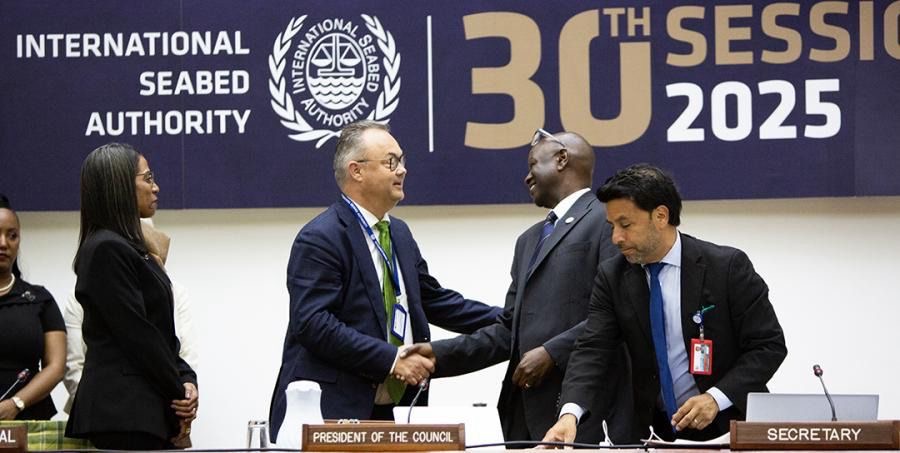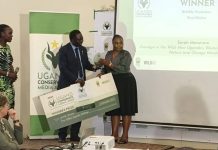The International Seabed Authority (ISA) Council, despite challenges, proceeded with its agenda and elected H.E. Ambassador Duncan Muhumuza Laki (Uganda) as President of the Council for its thirtieth session on Monday, 17 March, 2025.
In his acceptance remarks, Ambassador Laki reaffirmed his commitment to fairness and transparency in leading the Council.
“I assume this role with a deep sense of duty and responsibility, recognizing the importance of our collective work in shaping the future of seabed governance. Our deliberations must be guided by transparency, inclusivity, and a shared commitment to the sustainable use of marine resources,” he stated.
Highlighting the work ahead, Ambassador Laki urged all delegates to remain focused on finalizing a balanced and effective regulatory framework for seabed resource exploitation.
“As we continue our discussions on the draft exploitation regulations, we must remain focused on achieving a fair and balanced framework—one that safeguards the environment, upholds the interests of all States, and ensures that the benefits of seabed resources are equitably shared,” he emphasized.
Overview of the International Seabed Authority (ISA)
The International Seabed Authority (ISA) is an intergovernmental organization established under the 1982 United Nations Convention on the Law of the Sea (UNCLOS). It has 169 member states and the European Union.
Key Functions and Structure
ISA comprises 169 member states and the EU, all parties to UNCLOS. It regulates mineral-related activities in the international seabed area (“the Area”). ISA consists of the Assembly, the Council, the Legal and Technical Commission, and the Secretariat.
Its main governing bodies include;
Council: The executive organ that establishes specific policies in conformity with UNCLOS.
Assembly: Comprising all ISA members, it sets general policies for the Authority.
Secretariat: Headed by the Secretary-General, managing daily operations.
Legal and Technical Commission: Advises the Council on technical and legal matters related to seabed exploration and exploitation.
Other Key Aspects of ISA also include;
Observer Status: Granted to non-party states, UN bodies, intergovernmental organizations, and NGOs, allowing participation in ISA meetings.
Mining Code: A set of rules, regulations, and procedures governing seabed prospecting, exploration, and exploitation.
The Current Secretary-General Ms. Leticia Reis de Carvalho assumed office on January 1, 2025, as ISA’s fourth Secretary-General. The thirtieth session of the ISA Council which began on March 17, 2025, will last two weeks initially but continue throughout the year.























